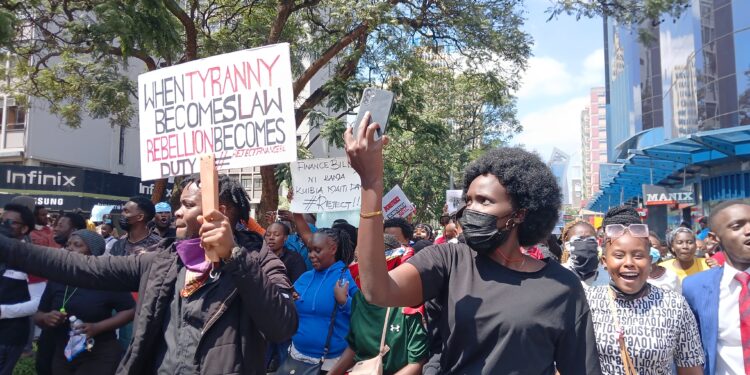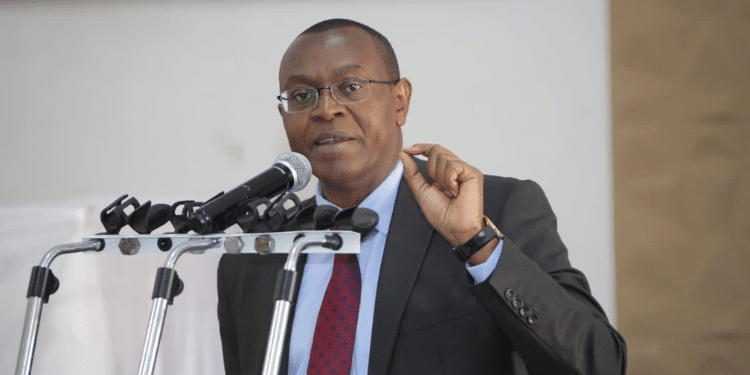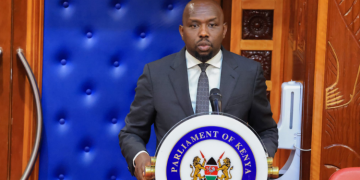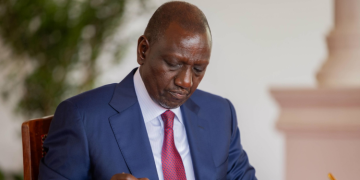After President William Ruto formed a broad-based government, Kenyan youth led by Gen Zs, are gearing up for a major protest on August 27, 2024, dubbed dissolve Parliament.
Coinciding with the 14th anniversary of the Kenyan 2010 Constitution, the Gen Zs-led movement will call for the dissolution of what they term as a “corrupt parliament.”
Protesters have planned to circulate petitions and rally under the banner of “gen-all all for one, and one for all,” demanding the removal of MPs.
“On Tuesday 27th august 2024 the gen z movement invites Kenya’s gen zote to join them in the streets as we mark and celebrate the country’s greatest gen alpha the constitution of Kenya 2010’s 14th anniversary!” reads a part in the poster.
“The people shall exercise their art 37 right to picket and assemble at the supreme court of Kenya beginning 8: 00am of 27/08/2024 to honour our obligation to respect, uphold, and defend constitution of Kenya 2010 in line with art 3.”

The Gen Zs stated that the constitution of Kenya 2010 stipulates that the Chief Justice can advise the president to dissolve parliament only under article 261, when and if parliament fails to enact a legislation that is expected to operationalize the constitution after the transmission of an order to do the same by the high court.
Why Gen Zs Want to Dissolve Parliament
They further noted that several Kenyans and institutions went to court in 2019 to petition the High Court and the former Chief Justice David Maraga for the dissolution of parliament for failing to enact a law to give effect to the not more than two third gender principle under art 27[8) and article 100 of the constitution 2010.
Also Read: Family Appeals for Help After Teen Shot During ‘Nane Nane’ Protests Ends Up in ICU
“Chief Justice Maraga advised the president to dissolve parliament in 2020. the 13th parliament therefore stands dissolved because it has not enacted the legislation as required, given that parliament, like stated by CJ Maraga in his advisory, is a living institution and is therefore bound as an institution as opposed to a term or a session of parliament,” the poster further reads.
“The national assembly and the senate filed a notice to appeal the decision to dissolve parliament in 2020. they did not file an appeal, the time for appeal lapsed. so, the advice to dissolve parliament is alive and this current parliament stands dissolved.”
“We are not resting, the agenda is #DissolveParliament, we shall not relent until @CJMarthaKoome does the needful and direct president Ruto to dissolve the 13th parliament,” reads a post from an X user.
Also Read: Ruto Under Pressure to Dissolve Parliament & Call Fresh Elections
Judiciary Gives Update on Petition to Dissolve Parliament
The Judiciary on Friday August 16 stated that a 5-Judge bench of the High Court was reconstituted on July 31, 2024, to determine the consolidated petitions to challenge Maraga’s opinion to dissolve Parliament on a priority basis.
It indicated that in 2019 and 2020, Chief Justice (Emeritus) David Maraga received six petitions seeking his advice to dissolve Parliament.
“The bench consists of Justices Jairus Ngaah (Presiding), Lawrence Mugambi, Patricia Nyaundi, Moses Otieno and Tabitha Ouya Wanyama,” Judiciary said in a statement.
Additionally, the Judiciary noted that the matter will be mentioned before the full bench on September 24,2024.
Kenyans on the Stolen Mace
The push to dissolve Parliament comes at a time some Kenyans believe that Parliament lost its legitimacy on June 25 when protesters invaded the August House and took the mace.
However, National Assembly Speaker Moses Wetangula later clarified that what was taken was a dummy mace used for decorative purposes, not the actual House mace, which remains highly secured.
Also Read: Judiciary Gives Update on Maraga’s Directive to Dissolve Parliament
“Reports indicating that the House mace had been carted away by the demonstrators are untrue; what was carried away was a dummy Mace on display. I want to assure members of the House that the mace is always highly secured,” he communicated.
The mace’s significance extends beyond its physical form as it represents the legislative power vested in the Kenyan parliament, which derives its authority from the people.
It is the symbol of authority and power, and no parliamentary session can commence without it being placed on its right place — the central table.
Follow our WhatsApp Channel for real-time news updates!
https://whatsapp.com/channel/0029VaB3k54HltYFiQ1f2i2C







































































